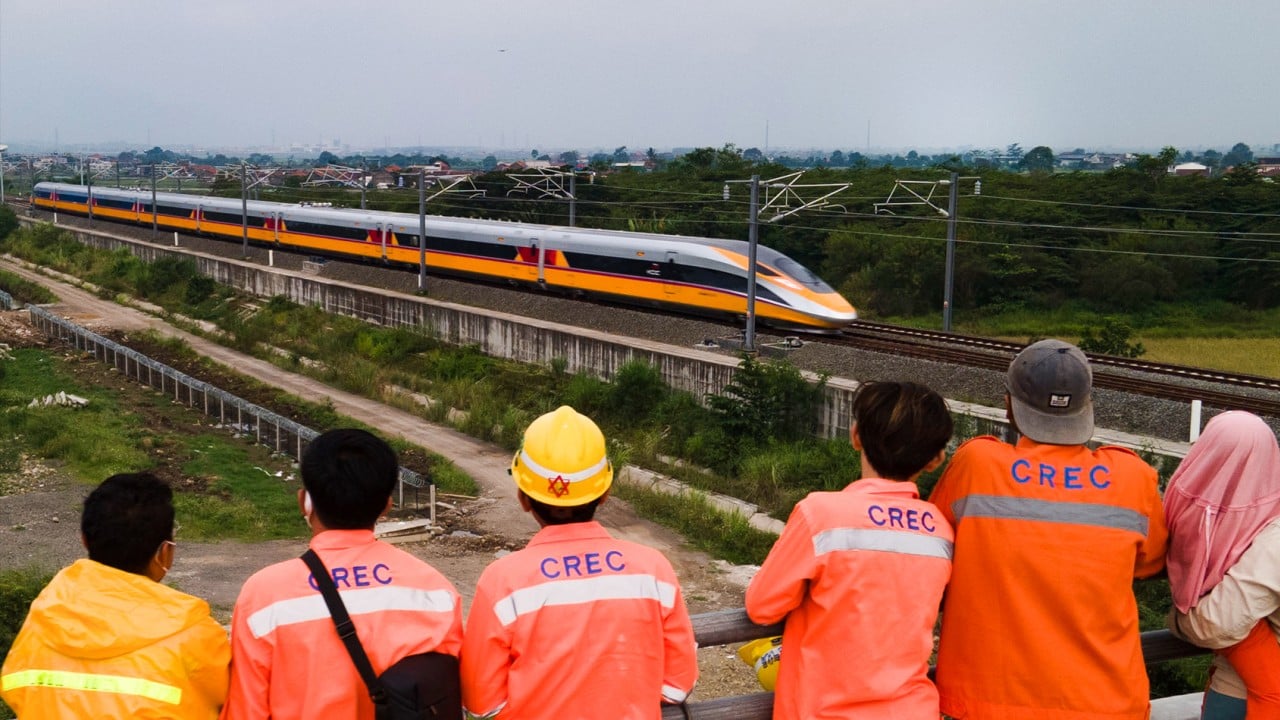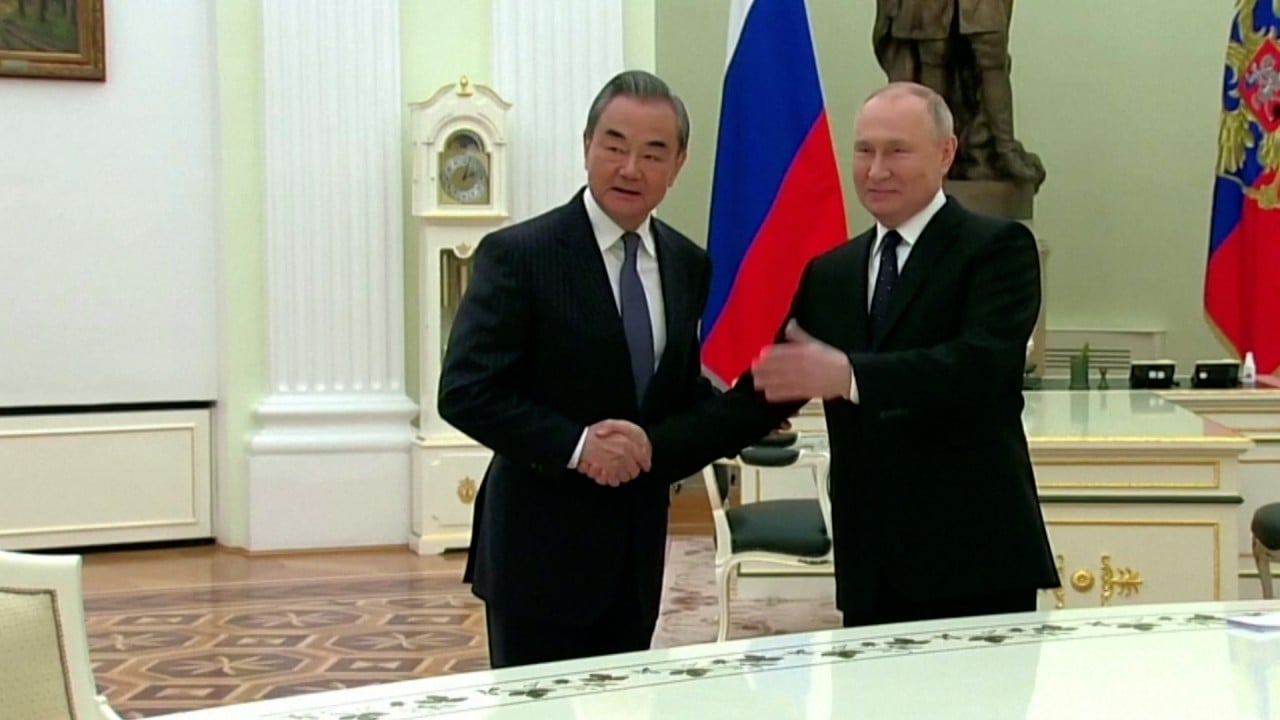
New Chinese foreign minister’s first ‘two sessions’ news conference to shed light on Beijing’s diplomatic priorities
- Under President Xi Jinping, fostering relationships with neighbouring countries has been a centrepiece of Chinese diplomacy
- But US has ramped up efforts to strengthen ties with Asian allies and partners to counter China’s influence
Besides obvious questions on issues such as China’s stance on the war in Ukraine and its strained ties with Washington, observers said Beijing’s ties with its many neighbours would also be high on their checklists.
China shares land borders with 14 countries and maritime boundaries with six.
With such long borders, maintaining stable relationships with its neighbours was crucial for China, said Wang Jian, director of the Institute of International Relations at the Shanghai Academy of Social Sciences.
“A good neighbourhood provides very important strategic support,” he said. “It would be impossible for China to achieve national rejuvenation or revitalisation if the neighbourhood is not stable.”
With early signs of a China-US rapprochement derailed by a row over a suspected Chinese spy balloon, Beijing has been reaching out to its neighbours. Xi has received five leaders in Beijing this year, two of them from neighbours in Southeast Asia – Philippine President Ferdinand Marcos Jnr and Cambodian Prime Minister Hun Sen.
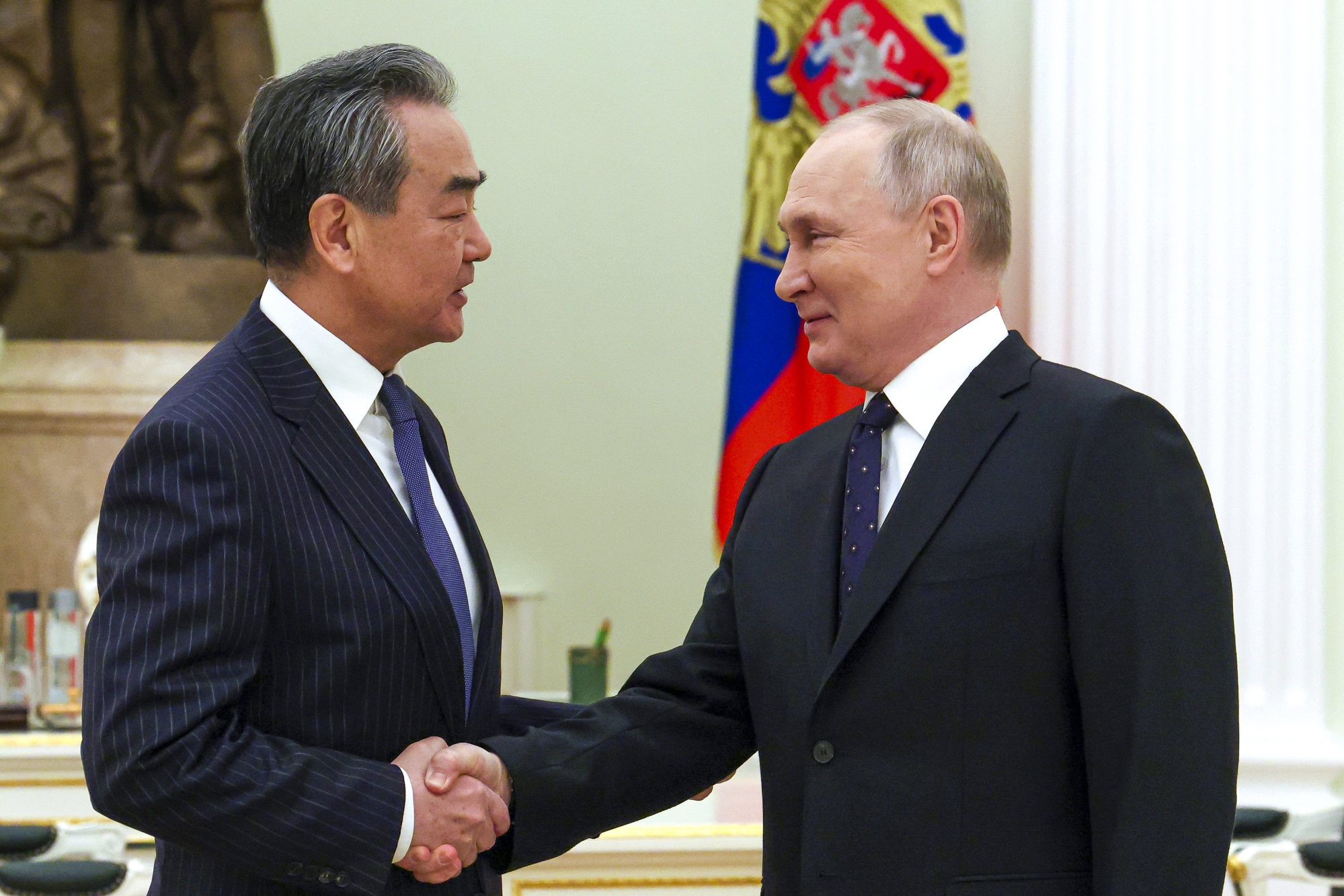
Qin has also been busy. The foreign minister rolled out the red carpet for his Singaporean counterpart Vivian Balakrishnan in Beijing late last month before flying to Jakarta to deepen ties with Indonesia and Asean en route to India for the G20 foreign ministers’ meeting and a bilateral meeting with Indian counterpart Subrahmanyam Jaishankar.
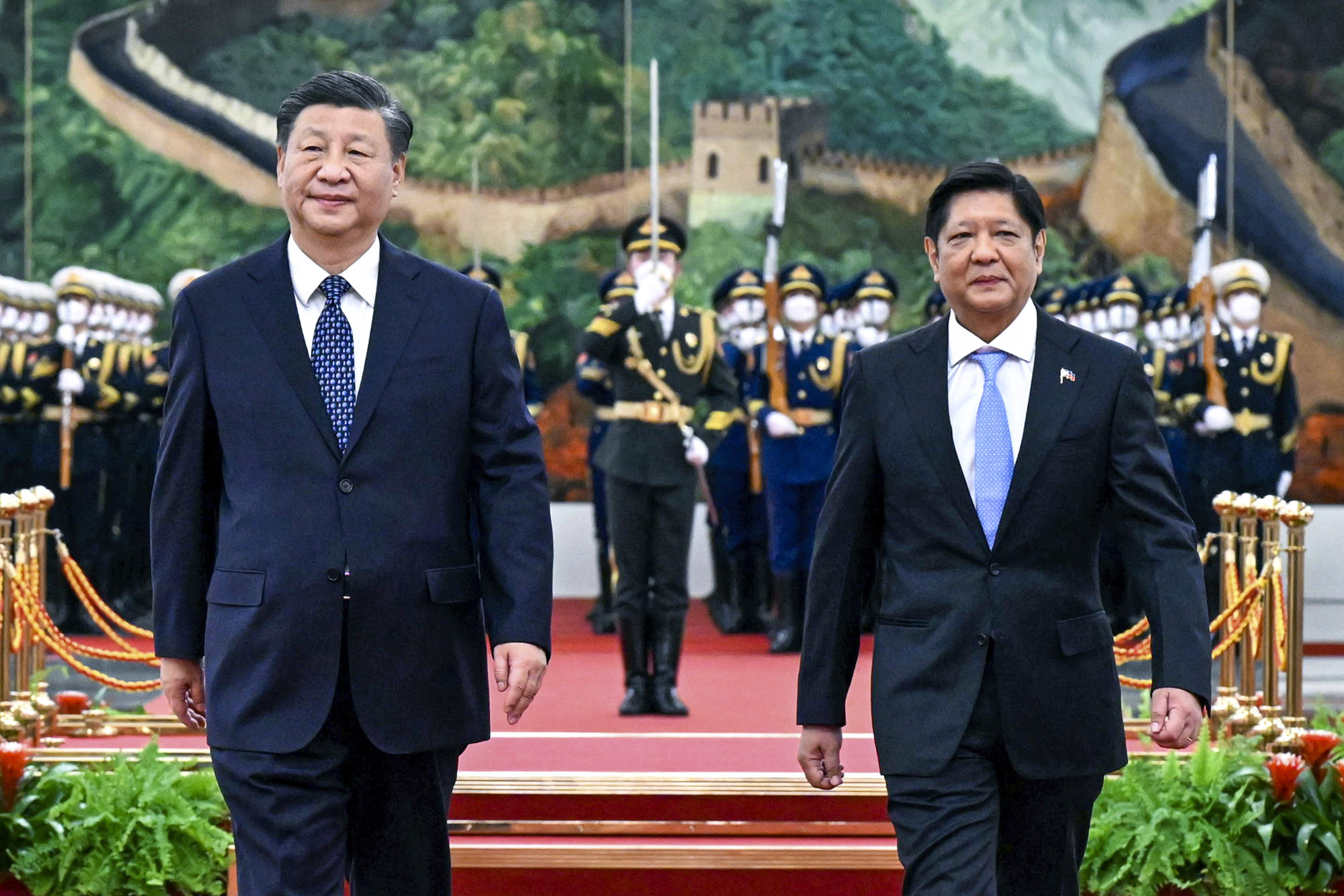
Policymakers in Beijing have long been aware of the importance of a stable and peaceful neighbourhood. When China and India negotiated over their disputed border regions in 1953, then premier Zhou Enlai proposed what came to be known as the Five Principles of Peaceful Coexistence to guide China’s relations with its immediate neighbours.
Emphasising mutual respect of sovereignty, territorial integrity and political independence, non-aggression, non-interference in each other’s internal affairs, equality and mutual benefit, and peaceful coexistence, they have become a cornerstone of China’s foreign policy.
“Actually, relations with neighbours have always been a high priority in China’s foreign policy,” Wang said.
In October 2013, at the Communist Party’s first Neighbourhood Diplomacy Work Conference in Beijing, Xi went a step further and linked the strengthening of neighbourhood diplomacy to the “revitalisation of the Chinese nation”.
“Efforts should be made to improve political relations, strengthen economic ties, deepen security cooperation, and foster closer humanitarian ties with neighbouring areas,” Xi said in a keynote speech at the conference, Xinhua reported.
Xi, who did not travel abroad for more than 2½ years during the Covid-19 pandemic, surprised many when he flew to Central Asia in September last year on his first overseas trip in almost 1,000 days. The visit, Chinese officials said, underscored the importance China attached to neighbourhood diplomacy.
How China’s durian demand could leave bitter taste for some Asian countries
The policy seems to have paid off – with Chinese investment pouring into Central Asia and Southeast Asia and Chinese-financed infrastructure springing up in countries including Cambodia, Laos and Pakistan as part of Xi’s trillion-dollar Belt and Road Initiative, which aims to expand Beijing’s economic and political clout through the building of a vast network of new ports, roads and railways around the globe.
In 2020, the 10-member Association of Southeast Asian Nations overtook the European Union as China’s largest trading partner, and opinion surveys showed that more Southeast Asians believed China had overwhelming economic, political and strategic influence in the region.
“China has made many efforts, diplomatic, political and economic, which in themselves could have led to positive results, but because of the territorial and maritime disputes with some of its neighbours, those positive results or effects are greatly diminished,” said Li Mingjiang, an associate professor at Nanyang Technological University’s S Rajaratnam School of International Studies in Singapore.
He was referring to China’s territorial disputes in the East and South China seas and on its Himalayan border, which have long strained Beijing’s ties with Japan, a number of Southeast Asian countries, and India.
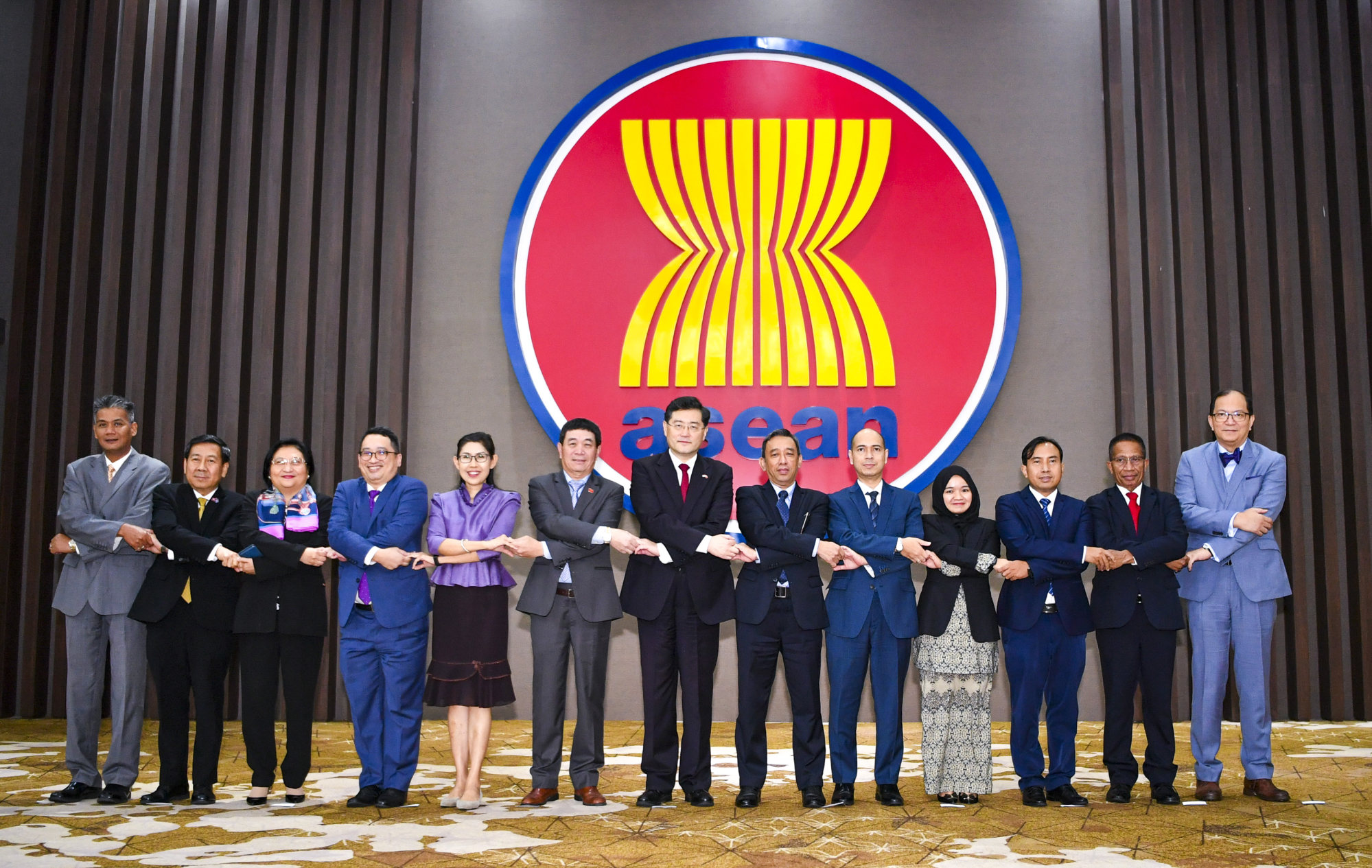
The United States, which sees China as a top strategic rival, has ramped up efforts to strengthen ties with Asian allies and partners to counter China’s influence, and observers said they believed Washington’s overtures in the Indo-Pacific region would pose a major challenge to China’s ties with its neighbours.
In early December, the US and Australia announced a commitment to deeper defence cooperation, and weeks later, the US and Japan announced the first forward deployment of a US Marine Corps littoral regiment to Japan.
Early last month, during a visit to Manila, US Defence Secretary Lloyd Austin announced a new agreement that would allow Washington to deploy military equipment and build facilities in four more locations across the Philippines, an island nation locked in a territorial dispute with China over the South China Sea.
Is China’s ‘wolf warrior’ diplomacy in retreat?
To counter China’s economic influence, the US has also launched an Indo-Pacific Economic Framework that calls for countries like India, Japan and South Korea to build “resilient supply chains”. Wang said that had entwined China’s relations with its neighbours with its ties with the US.
“With its containment strategy, the US is also looking to transform China’s neighbourhood, and competition between China and the US is increasingly reflected in China’s neighbouring regions,” he said.
Wang said Beijing needed to tread carefully to avoid spillover effects from the war in Ukraine, “which is fought in Europe but has spilled over to Asia and has brought instability and uncertainty”.
Since Russia’s invasion of Ukraine in February last year, a number of Asian countries, including India, Japan and South Korea – all neighbours of China – have announced plans to increase military budgets, while in the former Soviet republics in Central Asia, which have maintained strong security and economic ties to Moscow, there have been deep concerns over economic spillover effects from the US-led sanctions on Russia.
Li said that under pressure from the US, Beijing might need to come up with some fresh ideas in pushing forward with its neighbourhood diplomacy.
“Compared to 10 years ago, it is clear that the neighbourhood is more important to China today,” Li said. “If China wants to deal with the escalating containment from the US, it has to do a better job to manage its ties with the neighbouring countries, to at least keep them from aligning with the US.”
But that would not be easy.
“China may want its neighbours to support China, at least to a certain extent, but this goal is very difficult, so the next goal would be to at least get these neighbours to stay neutral,” Li added.








